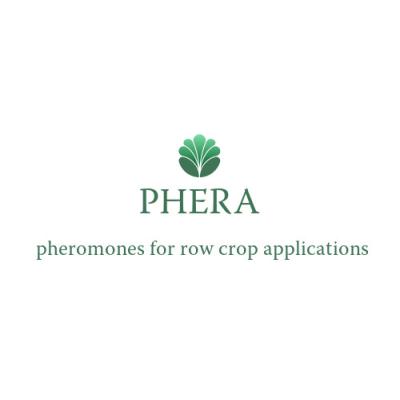
PHERA
PHEromones for Row crop Applications

PHEromones for Row crop Applications
Mating disruption offers an effective solution to pest control and an alternative to current chemical-based insecticides. This approach uses insect sex pheromones to disrupt their reproductive cycles. Unlike chemical-based pesticides, it preserves biodiversity and has no environmental toxicity.
Although the science of mating disruption has been understood and proven for some 20 years, the cost of pheromone production has been a barrier to its deployment. However, research into production via fermentation methods has been under development for around five years. This will be able to produce pheromones at a fraction of the cost of the synthetic alternatives. The dramatic drop in price will move mating disruption for pest protection out of its current niche of high-value crops and make it affordable and accessible for large-scale row crops.
Creating an effective biotech-based method for producing pheromones will address this challenge and allow for the wider deployment of this solution. PHERA brings together the required expertise in production and formulation.
PHERA’s key objectives are twofold; first to demonstrate the cost-efficient production of three bio-based pheromones at scale; second, to contribute to increasing agricultural productivity through sustainable methods
By achieving its overall objectives, PHERA will have developed new insect pheromones for use in agriculture. These will be more affordable and accessible than existing products. It will make a significant environmental contribution by reducing, even eliminating, the usage of toxic chemical insecticides and diminishing the environmental footprint of pest control as a result. It will also make a relevant economic impact, by creating a new business sector and making the pheromone-based approach much affordable to farmers.
Additionally, PHERA will make contributions to specific BBI JU KPIs through:
Affordable & competitive bio-based pest control is possible
05 October 2020
The PHERA coordinator, BioPhero, has enlarged the production of its first pheromone-based pest control product. The progress will make the environmentally-friendly bioproduct more affordable and competitive, allowing a significant reduction in the use of pesticides. Read more